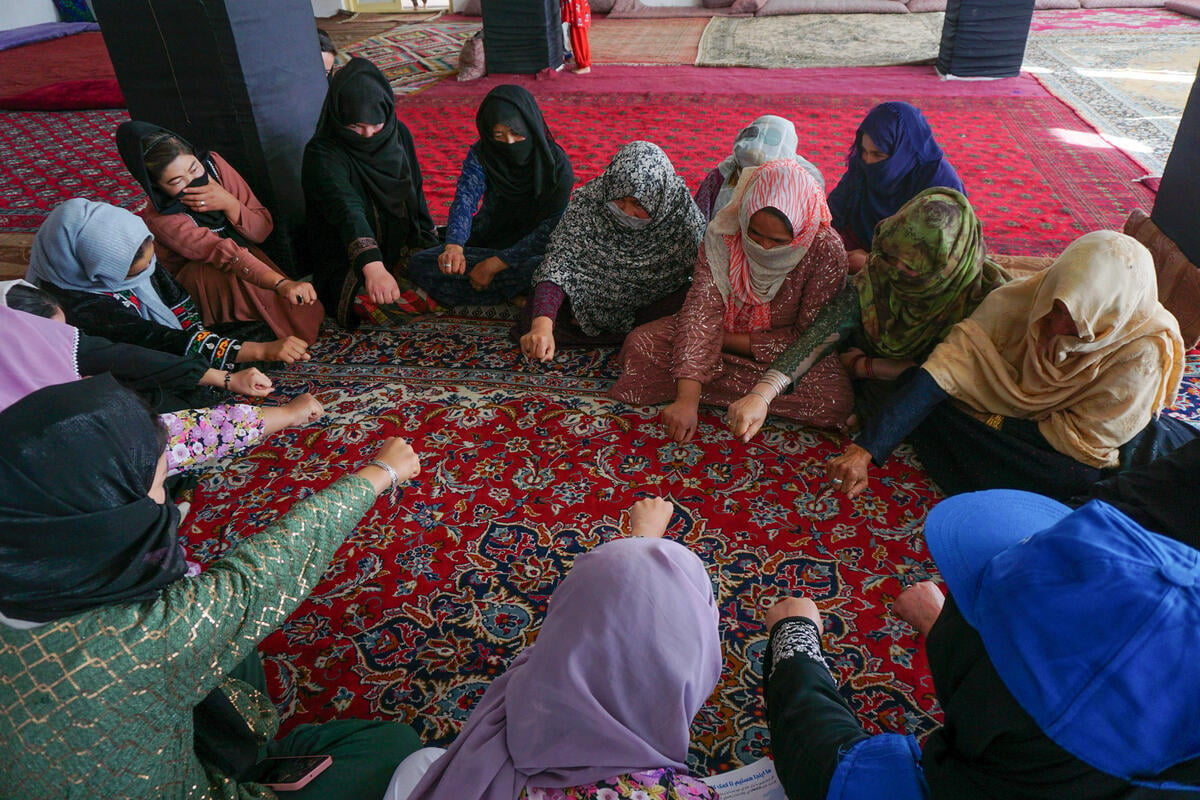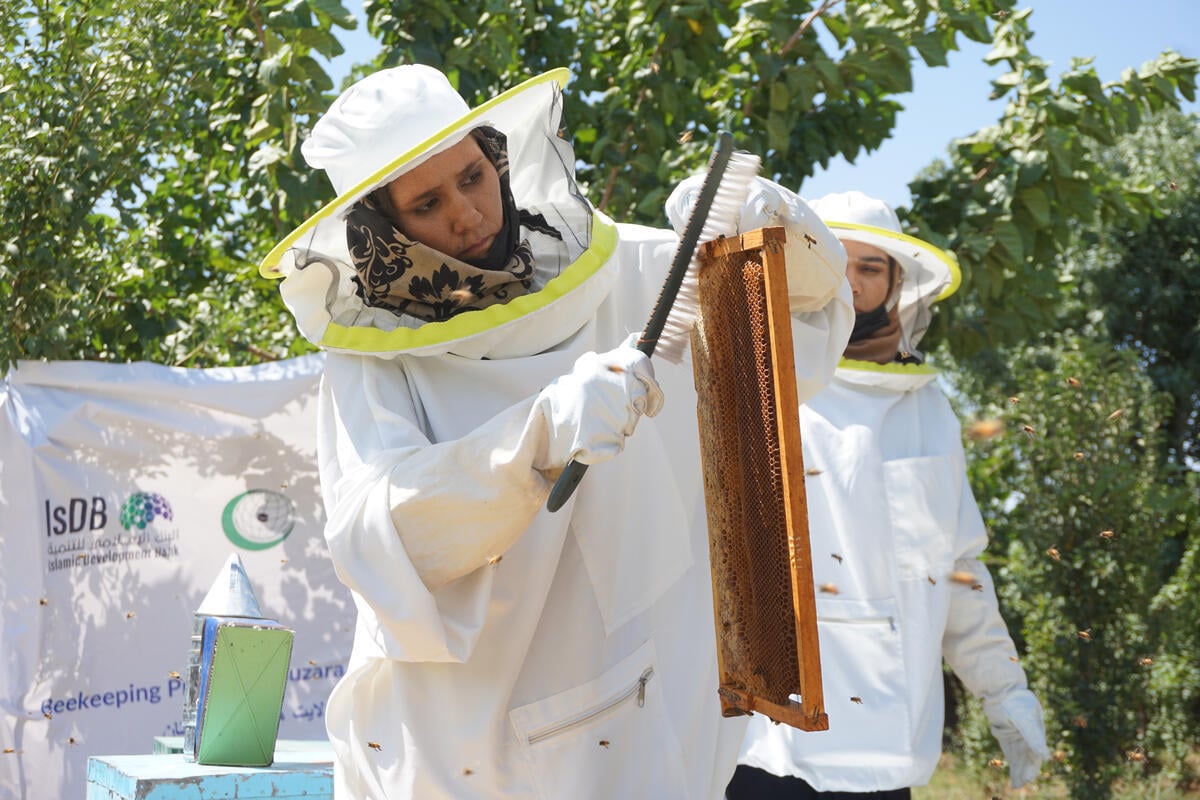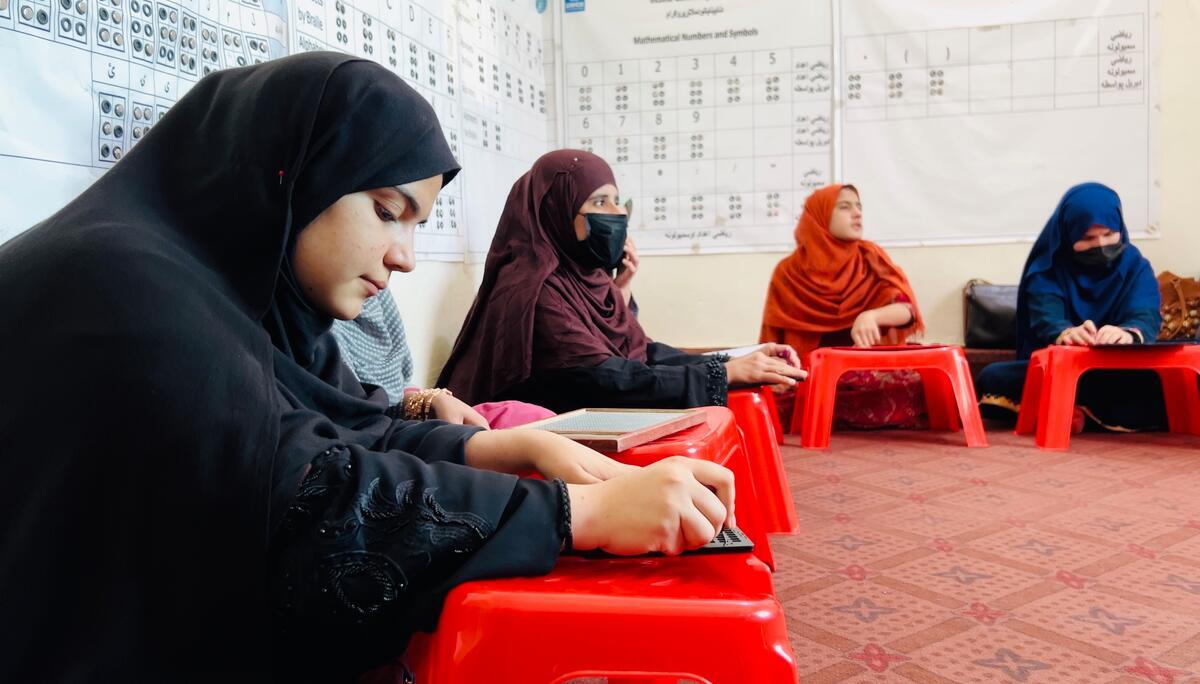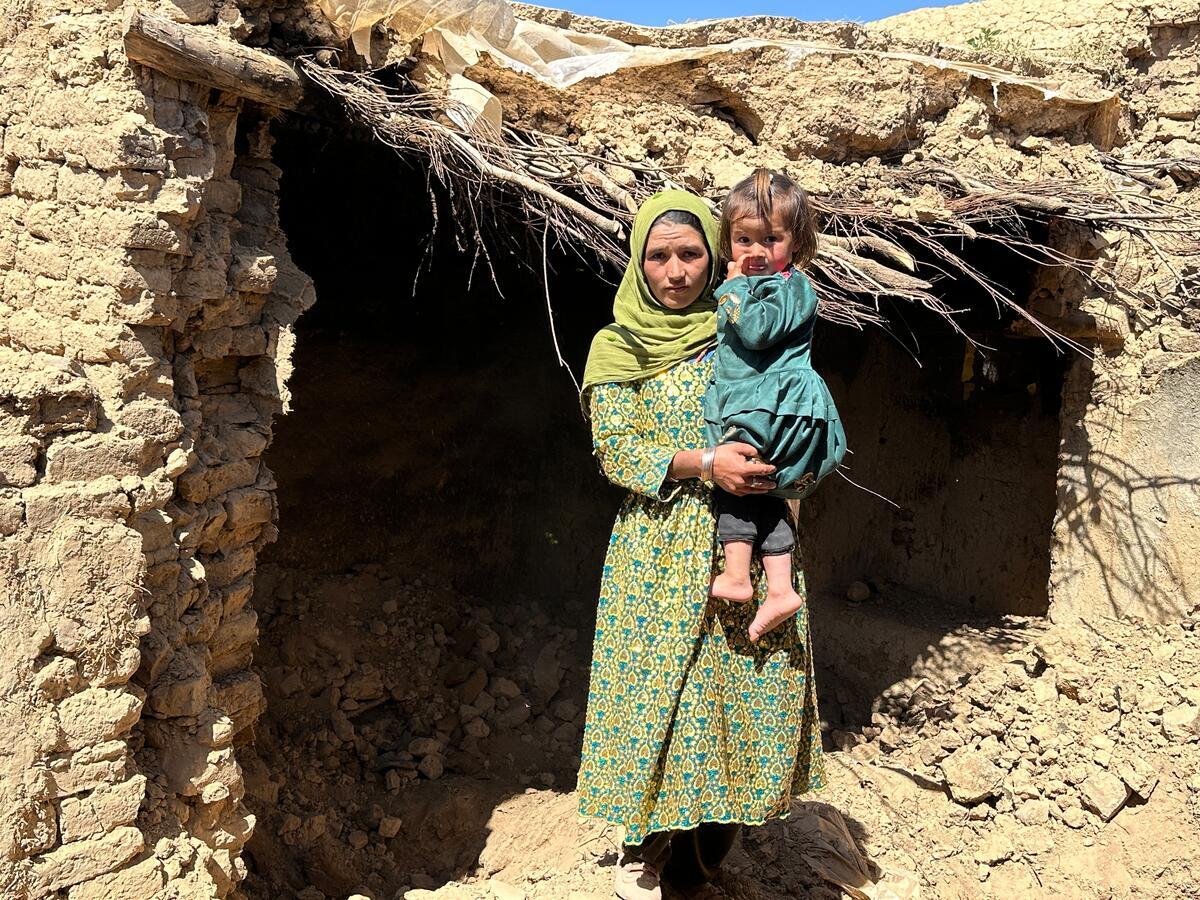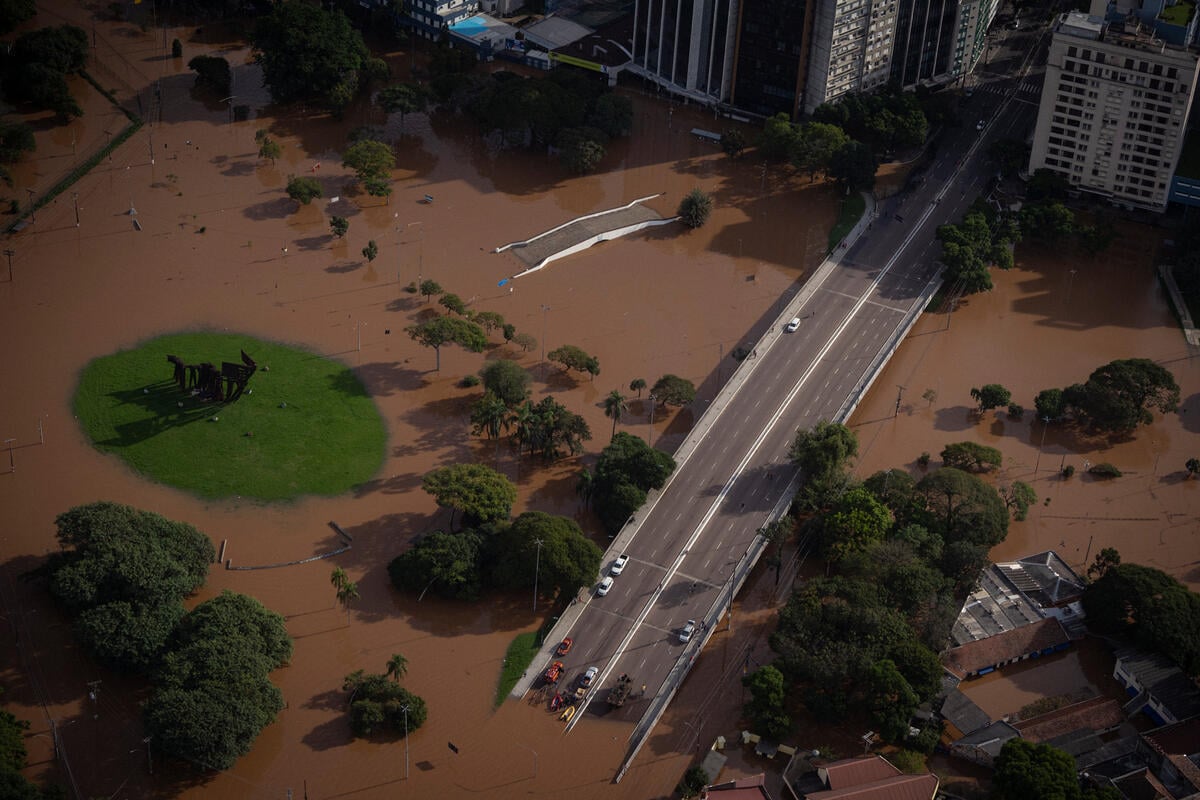Newborn Afghan helps UNHCR exceed planning figure for returns
Newborn Afghan helps UNHCR exceed planning figure for returns

DOGHAROUN, Iran, March 13 (UNHCR) - Three months after she was born, baby Nastaran finally went home. Born in Iran, she recently went back to her grandfather's homeland in Afghanistan and was nominated as the 400,000th Afghan returnee from Iran since voluntary repatriation started last April.
Wrapped in a pink coat and white blanket, Nastaran was oblivious to the ceremony around her as UNHCR staff and Iranian government officials presented her family with a commemorative certificate on March 9. The 400,000 figure is significant because it represents UNHCR's one-year planning figure from the time it started the voluntary repatriation initiative with the Iranian government's Bureau for Aliens and Foreign Immigrants Affairs (BAFIA) in April 2002.
Nastaran, with her parents and grandparents, was returning home through Dogharoun, Iran's main border crossing point with Afghanistan, in the north-eastern Khorasan province. The trip was also symbolic for her 18-year-old mother, Zahra, who was also born in Iran.
Zahra and her three brothers have lived in Iran since birth. Their father returned to Afghanistan upon the victory of the mujahideen, but the ethnic-Tajik family had to flee back to Iran in 1996, when Pashtun-dominated Taliban took power in Afghanistan.
Zahra finished junior high school in Mashad and learned to vaccinate patients. She assisted a female physician in Mashad before marrying her cousin, Gholam, who has lived in Iran for a long time and completed his junior high school there.
After marriage, Zahra had to stop working. "She is now married, it is not right for a married woman to work outside the house," said Najibollah, her 44-year-old father. "She is not like Iranian women who continue working outside home, after marriage even."
Asked whether Zahra would be able to continue her work in Afghanistan, the patriarch replied, "I don't know. Our culture is also changing in Afghanistan."
Najibollah's in-laws returned to Herat five years ago. "We have heard much good news from Herat," he said. "People are happy and it seems some working opportunities are available there. I hope I can get a job in Herat to support my parents and my family there."
He plans to live with his relatives until he builds his own house. "As soon as I build a few rooms I will come back to Iran to take back the rest of my family."
Between Nastaran, Zahra and Najibollah, the three generations of Afghan returnees are full of hope for homecoming. The older generation, wizened from decades of struggle, has much to teach. And the younger generation can use this experience to rebuild their lives and reconstruct their war-ravaged homeland.
Since the start of the voluntary repatriation programme in April last year, some 402,500 Afghan refugees have returned from Iran, over 96 percent through Dogharoun. The number includes almost 267,500 people who went back under the joint UNHCR/BAFIA initiative, as well as 135,000 spontaneous returnees.
In 2003, UNHCR plans to facilitate the voluntary return of up to 500,000 Afghans from Iran.


